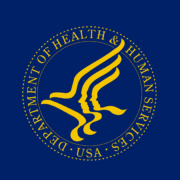 By Nancy Glick, Director of Food and Nutrition Policy
By Nancy Glick, Director of Food and Nutrition Policy
Americans need and now have an Obesity Bill of Rights for a reason: People with obesity do not receive the same concern, level of attention, and quality care as those with any other serious chronic disease.
Put into real-life terms: Though the adult obesity rate now exceeds 42 percent – the highest level ever recorded – obesity is still viewed as a problem of lack of willpower; too many health professionals act in discriminatory ways based on people’s size; and those seeking obesity care often face exclusions in insurance plans, restrictive practices that delay or deny treatment, or are not factored into decisions regarding medicine use.
The consequence is that only 10 percent of people with obesity get help from medical professionals and only 2 percent of those eligible for treatment with Food and Drug Administration (FDA)-approved anti-obesity medicines (AOMs) have been prescribed these drugs, meaning the disease remains undiagnosed and undertreated. Compounding the impact, untreated obesity worsens the outcomes of more than 230 other chronic diseases, which is why obesity is responsible for as many as 400,000 Americans dying from obesity annually and costs the nation $1.72 trillion a year in direct and indirect health expenditures – more than what Social Security paid in retirement benefits in 2022.
It does not have to be this way.
And this is where the Obesity Bill of Rights enters the picture. Developed by the National Consumers League (NCL) and the National Council on Aging, in consultation with leading obesity specialists, the bill of rights establishes eight essential rights with the core requirements so adults will receive the same person-centered, quality care for obesity as those with other chronic conditions. As such, the bill of rights serves as a blueprint for necessary changes in medical practice and government policy, starting with actions that can happen now.
One immediate action item is pressing Congress to pass the Treat and Reduce Obesity Act (TROA), an important legislation that will allow more seniors to be treated with FDA-approved anti-obesity medications under the Medicare program. This matter is a high priority because obesity rates have nearly doubled among older adults to include two in every five Americans ages 65 and older.
Another priority is ensuring that health professionals have the prescribing information to effectively treat people with obesity when they are taking drugs for other conditions, such as depression, schizophrenia, infections, and cancer. The simple fact is that certain drugs work differently in people with obesity and the consequences can be underdosing, a delay in response time, or the drug remaining in the body too long, potentially causing side effects. For example, studies show the drug brexpiprazole (Rexulti®), which treats depression and schizophrenia, takes significantly longer to reach effective levels in people with obesity – and some patients never reach these levels. Fortunately, the same research provides an improved dosing regimen so all patients with obesity can achieve efficacy.
A different challenge involves drugs like posaconazole (Noxafil®), an antifungal often prescribed by oncologists to prevent infections. Two separate clinical trials show that obesity significantly increases posaconazole’s “half-life” – a term reflecting the amount of time it takes to rid the drug from the body. Half-life is an issue with posaconazole because many oncology medications must be delayed until the drug is out of the body’s system. Thus, if the package insert does not flag this matter when patients have obesity, doctors prescribing posaconazole may not know about the increase in half-life and start using oncology medicines too soon.
These problems are not rare, but drug labels to guide safe and effective prescribing are dismissing people with obesity. For this reason, the Obesity Bill of Rights includes language to make accurate prescribing a requirement for receiving person-centered obesity care. Moreover, because increasing research validates the consequences of “flying blind” when drugs behave differently in the bodies of people with obesity, the obesity community is raising alarm bells, supported by a position statement from the American College of Clinical Pharmacology (ACCP), which urges FDA to close gaps in the testing and approval process for new drugs intended for use by people with obesity.
However, because more immediate action is needed, five leading obesity organizations – American Society for Metabolic and Bariatric Surgery, the Obesity Action Coalition, the Obesity Medicine Association, the STOP Obesity Alliance, and The Obesity Society – issued a joint statement calling on drug manufacturers to update their labeling immediately to provide correct usage instructions for people with obesity when there should be a difference in dosing.
NCL stands with the obesity community in calling for this sensible action and urges FDA to be a catalyst in ensuring that health professionals have the prescribing information needed for their patients with obesity to take important therapeutics safely and achieve the maximum benefit. For more information, visit right2obesitycare.org.
###
About the National Consumers League (NCL)
The National Consumers League, founded in 1899, is America’s pioneer consumer organization. Our mission is to protect and promote social and economic justice for consumers and workers in the United States and abroad. For more information, visit www.nclnet.org.



 By Sam Sears, Health Policy Associate, National Consumers League
By Sam Sears, Health Policy Associate, National Consumers League
 By Nancy Glick, Director of Food and Nutrition Policy
By Nancy Glick, Director of Food and Nutrition Policy















